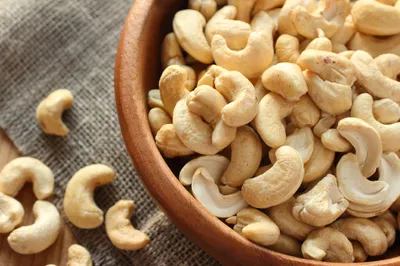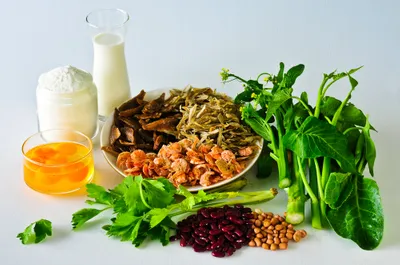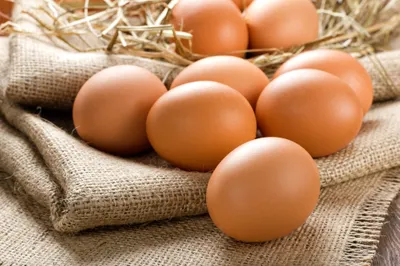Feeling a little glum, chum?
Never fear, the following eight nutrients (found in very common food sources) are not only good for your physical wellbeing—they’re also scientifically proven to make you happier…
1. Iron
If you’ve ever suffer from an iron deficiency, you already know the sad and sluggish feeling that occurs when vital oxygen transport throughout the body is compromised. Women in their child-bearing years as well as those who don’t get adequate animal proteins (i.e., vegans and vegetarians) in their diets can be especially susceptible to low iron levels. A diet rich in lean beef and turkey and/or fortified cereal and lentils (if you don’t eat meat) can soothe iron-depleted fatigue and depression.
2. Magnesium
Adequate levels of the mineral magnesium are required for the brain’s release and uptake of serotonin (a derived from tryptophan). This means that low magnesium will result in low serotonin—and cause irritability, fatigue, depression, anxiety, and even paranoia and mental confusion. To keep your mood regulated, eat rich magnesium sources like spinach, peanuts, almonds, cashews, and edamame.
3. Omega-3 Fatty Acids
You probably already know that foods rich in omega-3s, a type of essential fatty acid, are good for you. However, chia seeds and fish (i.e., herring, trout, and Atlantic salmon), are required because the body doesn’t naturally produce it’s own omega-3s to prevent irritability, low energy, depression, and even suicidal thoughts.
4. Calcium
It might surprise you to learn that you don’t need to consume cow dairy in order to get adequate calcium. You can support bone and blood vessel health, reduce the risk of type 2 diabetes, and regulate mood and hormone (estrogen) levels by consuming foods like kale, collard greens, and the typical milk, cheese, and yogurt sources.
5. Chromium
This little-mentioned trace mineral has a major effect on our brains. Chromium helps metabolize food, regulate insulin sugar levels, and maintain balanced mood, which is why low levels often occur in patients who suffer from depression. However, you can boost chromium intake by consuming lean turkey breast, potatoes, and broccoli.
6. Vitamin D
Vitamin D, known as the “happy vitamin,” is often tied to SADS (Seasonal Affective Disorder), which often occurs with limited sun exposure and sedentary, indoor lifestyle. However, along with boosting mood, a healthy dose of vitamin D daily strengthens the immune system and supports bones (when consumed with calcium). Even though the most potent vitamin-D is taken from sun exposure, you can find vitamin-D-rich sources in eggs (with yolks), mushrooms, and certain types of fish (salmon and swordfish).
7. Vitamin B12
If you’re vegetarian or vegan (or if you just don’t eat a lot of meat), you’re at risk of B12 deficiency as this nutrient is most prevalent in animal byproducts (i.e., meat, fish, cheese, and eggs). A B12 deficiency can cause depression, mood swings, and fatigue as it regulates neurological and nerve function.
8. Vitamin B6
Just like B12 deficiency, a vitamin B6 deficiency can cause depression, along with temporary anemia—which lowers energy and weakens immunity. Women are most susceptible to B6 deficiency and doctors will often recommend supplementation along with a B6 diet boost, from sources like salmon, yellow fin tuna, chicken breast, and chickpeas, to regulate mood and prevent premenstrual depression.











